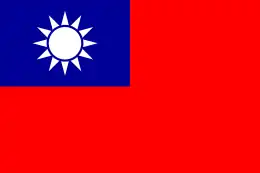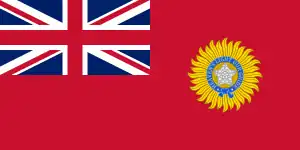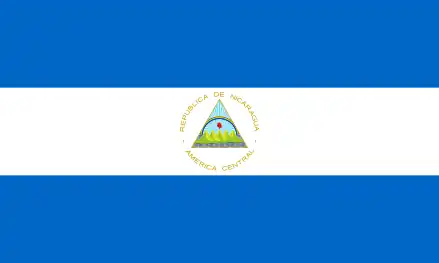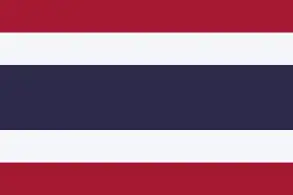Between 1920 and 1939, a total of 63 countries became member states of the League of Nations. The Covenant forming the League of Nations was included in the Treaty of Versailles and came into force on 10 January 1920, with the League of Nations being dissolved on 18 April 1946; its assets and responsibilities were transferred to the United Nations.
The League's greatest extent was from 28 September 1934 (when Ecuador joined) to 23 February 1935 (when Paraguay withdrew) with 58 members. At this time, only Costa Rica (22 January 1925), Brazil (14 June 1926), Japan (27 March 1933) and Germany (19 October 1933) had withdrawn, and only Egypt was later joined (on 26 May 1937).
The members (listed from their earliest joining and alphabetically if they joined on the same day) at that time were Argentina, Australia, Belgium, Bolivia, the British Empire, Canada, Chile, China, Colombia, Cuba, Czechoslovakia, Denmark, El Salvador, France, Greece, Guatemala, Haiti, Honduras, India, Italy, Liberia, the Netherlands, New Zealand, Nicaragua, Norway, Panama, Paraguay, Persia/Iran, Peru, Poland, Portugal, Romania, Siam, South Africa, Spain, Sweden, Switzerland, Uruguay, Venezuela, Yugoslavia, Austria, Bulgaria, Finland, Luxembourg, Albania, Estonia, Latvia, Lithuania, Hungary, the Irish Free State, Ethiopia, the Dominican Republic, Mexico, Turkey, Iraq, the Soviet Union, Afghanistan, and Ecuador.
Of the 42 founding members,[1] 23 (or 24, counting the Free France) were members when the League of Nations was dissolved in 1946. A further 21 countries joined between 1920 and 1937, but seven had withdrawn, left, or been expelled before 1946.
Countries are listed under the year in which they joined. The word "withdrew" indicates that a country left of its own choice. The word "left" indicates a country that ceased to exist after annexation by Germany, Italy, or the Soviet Union. The Soviet Union was expelled from the League in 1939, after its invasion of Finland, and was the only country to face that measure.
Despite formulating the concept and signing the Covenant, the United States never joined the League of Nations, and some relatively-isolated sovereign states in Asia also did not join, including Saudi Arabia, Yemen, Mongolia, Nepal, and Bhutan.
Likewise, none of the European microstates of Andorra, Liechtenstein, Monaco, San Marino, and Vatican City ever sought membership in the organization.
At the IX Congress of European Nationalities, an organization of the League of Nations, held in Bern, Galicia, Basque Country and Catalonia, the first three autonomies of Spain, were recognized as a nation. In any case, they were not independent but were represented by the Spanish government.[2]
Map

10 January 1920: founding members
 Argentina (withdrew 1921 on rejection of an Argentine resolution that all sovereign states would be admitted to the League.[3] It resumed full membership 26 September 1933[4])
Argentina (withdrew 1921 on rejection of an Argentine resolution that all sovereign states would be admitted to the League.[3] It resumed full membership 26 September 1933[4]).svg.png.webp) Australia
Australia.svg.png.webp) Belgium
Belgium.svg.png.webp) Bolivia
Bolivia.svg.png.webp) Brazil (withdrew 14 June 1926)
Brazil (withdrew 14 June 1926) British Empire
British Empire.svg.png.webp)
.png.webp) Canada
Canada Chile (withdrew 14 May 1938)
Chile (withdrew 14 May 1938).svg.png.webp)
 China
China Colombia
Colombia.svg.png.webp) Cuba
Cuba Czechoslovakia (occupied by Nazi Germany 15 March 1939)[5]
Czechoslovakia (occupied by Nazi Germany 15 March 1939)[5] Denmark[6]
Denmark[6] El Salvador (withdrew 11 August 1937)
El Salvador (withdrew 11 August 1937).svg.png.webp) France (Vichy France withdrew 18 April 1941; withdrawal not recognised by Free French forces)
France (Vichy France withdrew 18 April 1941; withdrawal not recognised by Free French forces).svg.png.webp) Greece
Greece Guatemala (withdrew 26 May 1936)
Guatemala (withdrew 26 May 1936).svg.png.webp) Haiti (withdrew April 1942)
Haiti (withdrew April 1942).svg.png.webp) Honduras (withdrew 10 July 1936)
Honduras (withdrew 10 July 1936) India
India_crowned.svg.png.webp) Italy (withdrew 11 December 1937)
Italy (withdrew 11 December 1937).svg.png.webp) Japan (withdrew 27 March 1933)
Japan (withdrew 27 March 1933) Liberia
Liberia Netherlands
Netherlands New Zealand
New Zealand Nicaragua (withdrew 27 June 1936)
Nicaragua (withdrew 27 June 1936) Norway
Norway Panama
Panama.svg.png.webp) Paraguay (withdrew 23 February 1935)
Paraguay (withdrew 23 February 1935).svg.png.webp) Persia (known as Iran from 1934)
Persia (known as Iran from 1934).svg.png.webp) Peru (withdrew 8 April 1939)
Peru (withdrew 8 April 1939).svg.png.webp) Poland
Poland Portugal
Portugal Romania (withdrew 11 July 1940)[7]
Romania (withdrew 11 July 1940)[7].svg.png.webp) Kingdom of Serbs, Croats and Slovenes (known as Kingdom of Yugoslavia from 1929)[8]
Kingdom of Serbs, Croats and Slovenes (known as Kingdom of Yugoslavia from 1929)[8] Siam (known as Thailand from 1939)[9]
Siam (known as Thailand from 1939)[9].svg.png.webp)
.svg.png.webp) South Africa
South Africa.svg.png.webp) Spain (withdrew 9 May 1939)
Spain (withdrew 9 May 1939) Sweden
Sweden.svg.png.webp) Switzerland
Switzerland Uruguay
Uruguay.svg.png.webp) Venezuela (withdrew 12 July 1938)
Venezuela (withdrew 12 July 1938)
1920
 Austria (joined 15 December 1920; occupied and annexed by Germany 13 March 1938)
Austria (joined 15 December 1920; occupied and annexed by Germany 13 March 1938) Bulgaria (joined 16 December 1920)
Bulgaria (joined 16 December 1920).svg.png.webp) Costa Rica (joined 16 December 1920; withdrew 22 January 1925)
Costa Rica (joined 16 December 1920; withdrew 22 January 1925) Finland (joined 16 December 1920)[10]
Finland (joined 16 December 1920)[10] Luxembourg (joined 16 December 1920)[11]
Luxembourg (joined 16 December 1920)[11].svg.png.webp) Albania (joined 17 December 1920)[12]
Albania (joined 17 December 1920)[12]
1921
 Estonia (joined 22 September 1921; occupied and annexed by the Soviet Union in 1940)
Estonia (joined 22 September 1921; occupied and annexed by the Soviet Union in 1940) Latvia (joined 22 September 1921; occupied and annexed by the Soviet Union in 1940)
Latvia (joined 22 September 1921; occupied and annexed by the Soviet Union in 1940) Lithuania (joined 22 September 1921; occupied and annexed by the Soviet Union in 1940)
Lithuania (joined 22 September 1921; occupied and annexed by the Soviet Union in 1940)
1922
.svg.png.webp) Hungary (joined 18 September 1922; withdrew 11 April 1939)
Hungary (joined 18 September 1922; withdrew 11 April 1939)
1923
1924
 Dominican Republic (joined 28 September 1924)
Dominican Republic (joined 28 September 1924)
1926
.svg.png.webp)
.svg.png.webp)
.svg.png.webp) Germany (joined 8 September 1926; withdrew 19 October 1933)
Germany (joined 8 September 1926; withdrew 19 October 1933)
1931
1932
1934
.svg.png.webp) Soviet Union (joined 18 September 1934; expelled 14 December 1939)
Soviet Union (joined 18 September 1934; expelled 14 December 1939).svg.png.webp) Afghanistan (joined 27 September 1934)
Afghanistan (joined 27 September 1934) Ecuador (joined 28 September 1934)
Ecuador (joined 28 September 1934)
1937
.svg.png.webp) Egypt (joined 26 May 1937) (the last country to join before World War II)
Egypt (joined 26 May 1937) (the last country to join before World War II)
See also
References
- ↑ Buell, Raymond Leslie (1929). International Relations. H. Holt. p. 647.
- ↑ Perez Pena, Marcos (13 September 2013). "80 años desde que Galicia es oficialmente nación". Eldiario.es. Retrieved 20 February 2020.
- ↑ South America Archived 10 May 2008 at the Wayback Machine, Encyclopedia of World History
- ↑ League of Nations chronology, United Nations
- ↑ Czechoslovakia never formally left the League and was present at the last meeting of the Assembly in 1946
- ↑ Left upon German takeover in 1943
- ↑ Hannsjoachim Wolfgang Koch, Macmillan International Higher Education, 1985, Aspects Of The Third Reich, p. 297
- ↑ Occupied by Axis Powers 1941–1945
- ↑ Hell, Stephan (8 January 2020). "A seat at the table". Bangkok Post. Retrieved 8 January 2020.
- ↑ Withdrew from active participation in the League after its defeat by the Soviet Union in 1944.
- ↑ Forced to withdraw by German occupation in May 1940 and incorporation into the German Reich.
- ↑ Forced to withdraw by Italian invasion of 1939.
- ↑ Toledo-García, Itzel; University of Essex, UK: ‘’"La cuestión de la dignidad nacional en el ingreso de México a la Sociedad de Naciones, 1919-1931"’’ Retrieved 4 September 2016. (Translated from Spanish: "On September 7th, 1931, the British Empire, Germany, Northern Ireland, Spain, France, Italy and Japan began the initiative; next day the proposal was adopted unanimously by the assembly, and the invitation was sent to the government of Mexico. The 10th of September the acceptance was communicated in Geneva… Two days later, Mexico was declared member of the League of Nations.")
Further reading
- Hell, Stefan (2019). Siam and The League of Nations; Modernisation, Sovereignty, and Multilateral Diplomacy, 1920-1940. Bangkok: River Books. ISBN 9789749863893. Archived from the original on 25 September 2020. Retrieved 8 January 2020.